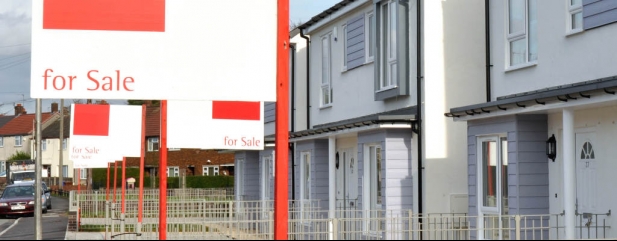Archived article
Please note that tax, investment, pension and ISA rules can change and the information and any views contained in this article may now be inaccurate.
Housing market could lose steam as stamp duty holiday is tapered

The Government’s holiday on stamp duty payable on house purchases is starting to be wound down, which could have a major impact on shares related to housebuilding, estate agency, DIY retail and conveyancing.
From 1 July, the rate above which the tax becomes payable in England and Northern Ireland dropped from £500,000 to £250,000, and from the start of October rates return to normal.
This will likely put a dent in housing transactions given the average house price in the UK is nearly £262,000, according to the latest data from the Halifax.
The bank claims the average house price for home movers in England and Wales in the six months to June 2020 was £373,537 but following the increase of the stamp duty limit to £500,000 prices increased by an astonishing £57,790 or 15.5% to an average of £431,327 in the six months to December 2020.
As a result, the proportion of homeowners paying stamp duty on transactions dropped from 93% in the six months to last June, to just 26% in the six months from June and December last year.
That means the Chancellor will have taken a lot less than the typical £12 billion a year which the duty generates.
The majority of people taking advantage of the stamp duty holiday were not first-time buyers but people moving home for a second, third or fourth time, including those downsizing to properties just under the £500,000 threshold.
If anything, first-time buyers were penalised by the need to find even bigger deposits due to the acceleration in house prices caused by the tax holiday. Once the duty is reintroduced, however, there is no guarantee house prices will fall back to the same level.
Evidence from Scotland, where the stamp duty holiday on the first £250,000 of the purchase price ended in March, suggests house prices will continue to rise, albeit at a slower rate and buyer interest is likely to fall. In March, Scotland had the weakest figures for new buyer enquiries of any UK region, according to the Royal Institute of Chartered Surveyors.
If that trend is replicated across the rest of the UK, estate agents will be the first to feel the air being sucked out of the market while lack of supply of quality properties is likely to underpin demand for new houses.
For now, the housebuilders are still on a roll – stamp duty didn’t even get a mention in Berkeley Group’s (BKG) latest results – as are the building materials stocks, but without Government stimulus sales will eventually revert to more normal levels.
Important information:
These articles are provided by Shares magazine which is published by AJ Bell Media, a part of AJ Bell. Shares is not written by AJ Bell.
Shares is provided for your general information and use and is not a personal recommendation to invest. It is not intended to be relied upon by you in making or not making any investment decisions. The investments referred to in these articles will not be suitable for all investors. If in doubt please seek appropriate independent financial advice.
Investors acting on the information in these articles do so at their own risk and AJ Bell Media and its staff do not accept liability for losses suffered by investors as a result of their investment decisions.
Issue contents
Editor's View
Exchange-Traded Funds
Feature
Great Ideas
- The car retailer whose shares are up 93% since we said to buy last May
- GlaxoSmithKline unveils ambitious growth targets
- Why we’re sticking with Burberry despite Gobbetti goodbye
- Ideal time to add inflation protection with this cheap trust
- Buy i3 Energy to play oil price strength and imminent dividends

 magazine
magazine








